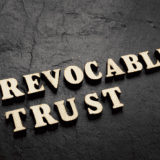If you’re wondering where to go for estate planning in Westmoreland County, Allegheny County, or Southwestern Pennsylvania, you’re not alone. Many people delay estate planning, thinking it’s only for the wealthy or elderly—but it’s a crucial step for anyone who wants to protect their assets and make sure their loved ones are cared for.
Estate planning gives you the power to outline your wishes clearly, avoid family disputes, and ensure your finances and property are handled the way you intend. But with so many options available, it can be hard to know where to go for estate planning—especially when it involves complex documents like wills, trusts, and powers of attorney.
In this article, we’ll help you explore your choices. From online tools to law firms based in Southwestern PA, we’ll break down the pros and cons so you can make a confident, informed decision that fits your needs and your future goals.
Estate Planning Attorneys: Your Go-To Experts
When deciding where to go for estate planning in Westmoreland County, Allegheny County, or anywhere in Southwestern Pennsylvania, one option stands out: working with an experienced estate planning attorney. While online tools and DIY kits may seem convenient, they often lack the personalization and legal precision that come with professional guidance. Attorneys who focus on estate planning understand the complexities of state laws, family dynamics, and asset protection—and they can tailor a plan that fits your unique goals.
Estate planning attorneys handle more than just wills. They can help you establish revocable trusts, powers of attorney, living wills, and strategies to minimize inheritance taxes in Pennsylvania. Their deep knowledge of both legal requirements and potential complications ensures your plan not only reflects your wishes but also holds up in court, should it ever be challenged. For residents in Southwestern PA, having a local attorney means having someone who knows the nuances of Pennsylvania estate law—and can apply them to your specific situation.
While it’s true that hiring an attorney may involve higher upfront costs compared to do-it-yourself methods, the long-term value is significant. You’re investing in peace of mind, legal accuracy, and a plan that truly protects your loved ones. If you’re serious about getting your estate in order and want to avoid costly mistakes, working with a dedicated estate planning attorney in Westmoreland County or Allegheny County is the most reliable path forward.
Finding the Right Estate Planning Attorney
When looking for an estate planning attorney in Westmoreland County, Allegheny County, or the greater Southwestern Pennsylvania area, it’s important to go beyond credentials. You want someone who not only understands the law, but also takes the time to understand you—your family, your goals, and your concerns.
Here are some key questions to ask when evaluating potential attorneys:
- Do you specialize in estate planning?
Not all attorneys handle wills and trusts regularly. Look for one whose primary focus is estate planning and elder law. - How much experience do you have with clients in situations like mine?
Whether you own a business, have a blended family, or want to minimize inheritance taxes, find out if the attorney has dealt with similar cases. - Will you be the one working on my plan, or someone else in your office?
You should know who’s doing the work and who you’ll be communicating with. - How do you stay current on changes in Pennsylvania estate law?
Estate planning laws change. A strong attorney will participate in continuing education and be up to date on local requirements. - What does your fee include?
Ask if pricing is flat or hourly, and whether future updates to your plan are included or billed separately.
Also, trust your instincts. A good estate planning attorney should:
- Take time to answer your questions clearly
- Avoid overwhelming you with legal jargon
- Make you feel heard, not rushed
If an attorney seems impatient, dismissive, or unclear about their process, don’t hesitate to keep looking. The right fit can make all the difference in creating a plan that protects your wishes and brings peace of mind.
Financial Advisors: A Holistic Approach
When thinking about where to go for estate planning in Westmoreland County, Allegheny County, or anywhere in Southwestern Pennsylvania, many people turn to financial advisors for guidance. While they aren’t a substitute for an estate planning attorney, financial advisors play a valuable role in helping you see the bigger picture—especially when it comes to aligning your estate plan with your overall financial goals.
The best estate plans result from a collaborative approach. Financial advisors can work closely with your estate planning attorney to coordinate investment strategies, asset transfers, tax planning, and beneficiary designations. Your attorney ensures everything is legally sound and compliant with Pennsylvania law, while your financial advisor helps you understand the long-term financial impact.
Together, they help create a well-rounded plan that:
- Maximizes asset protection and tax efficiency
- Coordinates retirement accounts and life insurance with your trust or will
- Aligns your estate plan with your broader financial and legacy goals
Choosing the Right Financial Advisor for Estate Planning
Look for an advisor with estate planning experience—preferably one who holds credentials like Certified Financial Planner (CFP®) or Chartered Financial Consultant (ChFC®). Ask how often they collaborate with estate planning attorneys and what their process looks like for updating plans as your life and finances evolve.
Important questions to ask include:
- How do you coordinate with estate planning attorneys?
- What’s your experience with trusts, beneficiary planning, and inheritance strategies?
- Are you a fiduciary? How are you compensated?
Make sure their approach supports your goals—not just their bottom line. Transparency and teamwork between your advisor and attorney are key to building a plan that truly works for you and your family.
Online Estate Planning Services: A Convenient, But Limited DIY Option
For those exploring where to go for estate planning in Westmoreland County, Allegheny County, or anywhere in Southwestern Pennsylvania, online estate planning platforms may seem like an appealing option. These do-it-yourself (DIY) services offer quick and affordable access to basic legal documents like wills, powers of attorney, and healthcare directives—all from the comfort of your home.
Online tools are often ideal for individuals with very simple estates and clear-cut wishes. You fill in your information, and the platform generates standardized documents—sometimes with the option for limited attorney review at an extra cost. The low price and convenience are what make DIY estate planning attractive to many.
When DIY Falls Short
However, online estate planning is not one-size-fits-all. These services can’t provide legal advice, don’t tailor documents to your specific circumstances, and often fail to address state-specific requirements, like those in Pennsylvania. If your situation involves children from multiple marriages, real estate in more than one state, a business, or special needs planning, a DIY option may leave critical gaps.
Mistakes in estate documents can lead to delays in probate, family disputes, or invalidated plans—undermining the very purpose of estate planning.
Proceed with Caution
If you do opt for a DIY service, choose a reputable platform. Make sure it offers forms tailored to Pennsylvania law, and consider having a local estate planning attorney review your documents to ensure they’re legally sound. What you save in fees upfront may cost you or your loved ones far more later if something is missed or misfiled.
Ultimately, while online services can be a starting point, they are rarely a substitute for the personalized attention and legal protection that an experienced estate planning attorney provides.
When Should You Start Estate Planning?
Many people think estate planning is something to worry about later in life—but the truth is, it’s never too early to start. Whether you’re just starting your career, raising a family, or managing a growing portfolio of assets, having a plan in place can protect everything you’ve worked for and provide peace of mind for you and your loved ones.
Estate planning isn’t just about writing a will. It includes a broad range of legal and financial tools—like a living trust, powers of attorney, and advance healthcare directives—that make up the foundation of your plan. These estate planning essentials ensure that your wishes are followed, your assets are protected, and your family isn’t left navigating confusion or conflict.
You should consider starting your estate plan if you:
- Own a home or other real estate
- Have children or other dependents
- Own a business or have business interests
- Want to minimize probate or avoid it altogether
- Are beginning to build wealth and want guidance on wealth management strategies
For many people, establishing a revocable living trust is an early and valuable step. It allows you to maintain control of your assets during your lifetime while avoiding probate and ensuring a smooth transfer to beneficiaries. It also complements broader wealth management goals by offering greater control over how and when your assets are distributed.
Even if your financial situation is relatively simple now, starting your estate plan early allows you to build on it over time. As your life evolves—marriage, children, retirement, or business growth—your plan can evolve too. And if you’re working with a financial advisor or attorney, they can help you make adjustments to keep your estate aligned with your long-term goals.
In short, the best time to start estate planning is now—before a crisis occurs or decisions are left in the hands of the court. With the right support and a clear plan in place, you can protect your legacy and care for the people who matter most.
Trusted Estate Planning Guidance in Southwestern PA: How Bumbaugh | George | Prather | DeDiana Can Help Protect Your Legacy
When it comes to safeguarding your legacy and ensuring your loved ones are cared for, Bumbaugh | George | Prather | DeDiana stands out as a trusted partner in estate planning across Westmoreland County, Allegheny County, and Southwestern Pennsylvania. With over 45 years of dedicated legal service, our firm combines deep-rooted experience with personalized attention to craft comprehensive estate plans tailored to your unique needs.
Comprehensive Estate Planning Services
Our team offers a full spectrum of estate planning services designed to provide peace of mind and legal clarity:
- Wills & Living Wills: Clearly articulate your wishes regarding asset distribution and medical care.
- Trusts: Establish various trusts, including revocable, irrevocable, and special needs trusts, to manage and protect your assets effectively.
- Powers of Attorney: Appoint trusted individuals to make financial and healthcare decisions on your behalf if you’re unable to do so.
- Guardianships: Set up legal guardianships to ensure the well-being of minors or incapacitated adults under your care.
- Elder Law & Special Needs Planning: Navigate the complexities of elder care and plan for the long-term needs of loved ones with disabilities.
- Probate & Estate Administration: Receive compassionate guidance through the probate process, ensuring your estate is settled according to your wishes.
Personalized Approach with Local Expertise
At Bumbaugh | George | Prather | DeDiana, we pride ourselves on delivering personalized legal solutions. Our attorneys take the time to understand your specific circumstances, providing clear explanations and responsive communication throughout the planning process. Being deeply familiar with Pennsylvania’s estate laws, we ensure that your estate plan is not only comprehensive but also compliant with state-specific regulations.
Schedule Your Consultation
Embarking on estate planning is a significant step towards securing your future and that of your loved ones. Contact Bumbaugh | George | Prather | DeDiana today to schedule a consultation and begin crafting an estate plan that reflects your values and goals.
Call: 724-864-6840
Learn More: https://bumbaughgeorge.com/estate-planning-administration
Let us help you navigate the complexities of estate planning with confidence and care.
Final Thoughts
Deciding where to go for estate planning is a personal choice. It depends on your situation, budget, and comfort level. For many, a combination of services works best. You might start with an online service for basic documents, then consult an attorney for review.
Remember, the most important thing is to have an estate plan. Don’t let indecision about where to go for estate planning stop you from taking action. Start with what you can afford and update your plan as your situation changes.
Estate planning is an act of love for your family. It provides clarity and peace of mind during difficult times. By choosing the right resource for your needs, you’re taking an important step in securing your legacy.
Frequently Asked Questions About Where To Go For Estate Planning
Where should I start if I’ve never done any estate planning before?
Start by meeting with an experienced estate planning attorney in your area. They can walk you through the essentials—like wills, powers of attorney, and living trusts—and help you create a plan that reflects your wishes and complies with Pennsylvania law.
Is it better to use an online service or work with a local attorney?
Online estate planning tools can be useful for simple situations, but they often lack the legal precision and personal attention of a local attorney. For anyone with children, real estate, business interests, or specific wishes, working with a licensed Pennsylvania attorney is the safest and most reliable option.
Can a financial advisor help with estate planning?
Yes—financial advisors can play an important role in coordinating your estate plan with your broader financial goals. However, they don’t draft legal documents. The best approach is to work with both a financial advisor and an estate planning attorney to ensure every aspect of your plan is aligned and legally sound.
How do I choose the right estate planning professional?
Look for a professional who specializes in estate planning and has experience in Pennsylvania estate law. Ask about their credentials, how they approach complex family or financial situations, and whether they regularly update plans as laws or your needs change.
Are there local estate planning resources in Westmoreland or Allegheny County?
Yes. You can contact the Westmoreland County Register of Wills or Allegheny County Orphans’ Court for information on local procedures. Additionally, local law firms—like Bumbaugh | George | Prather | DeDiana—offer personalized estate planning services to residents throughout Southwestern PA.






